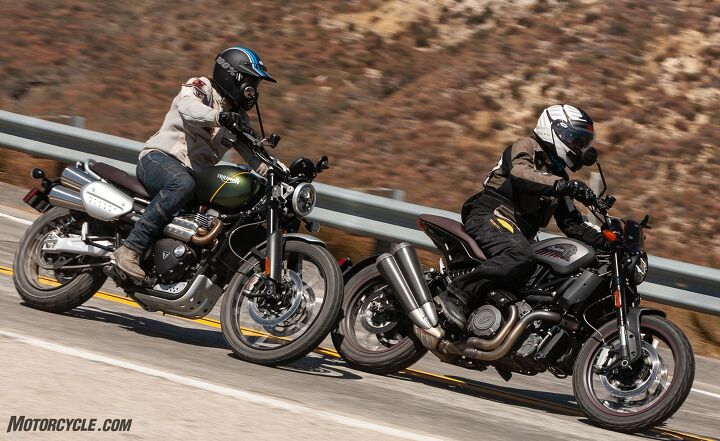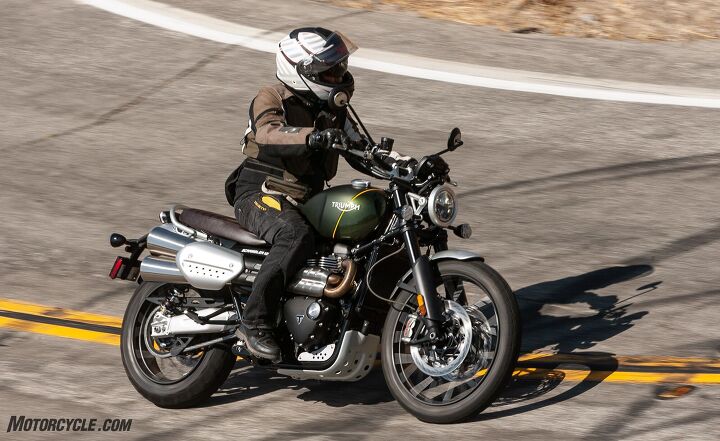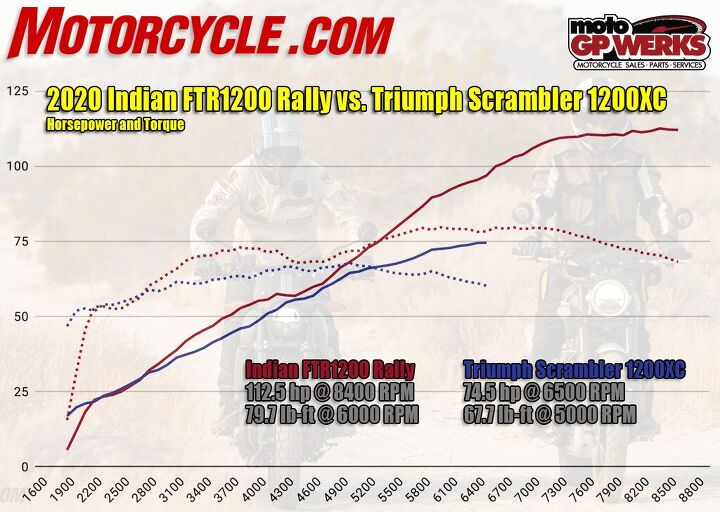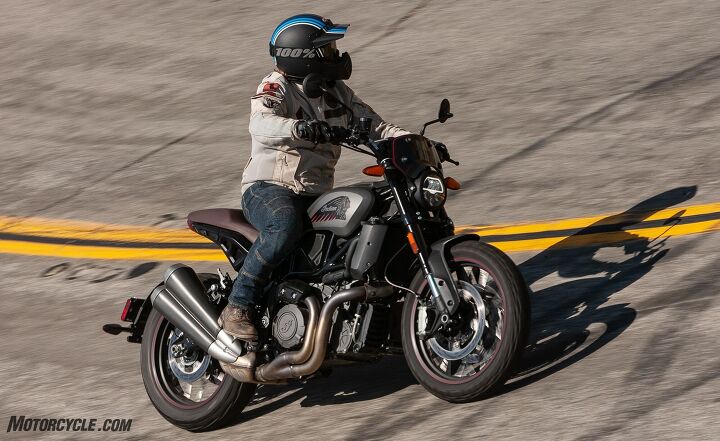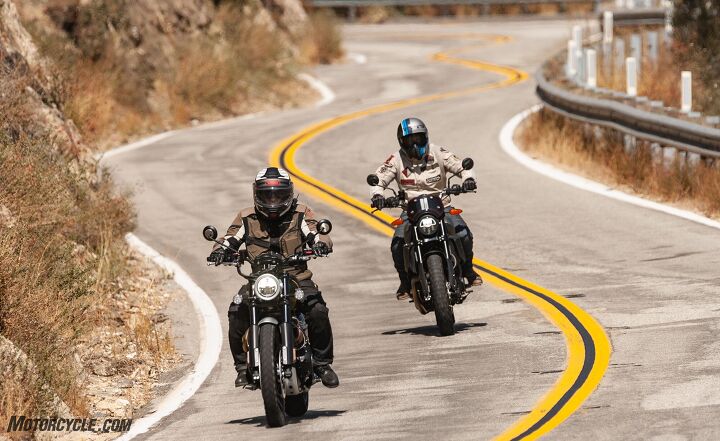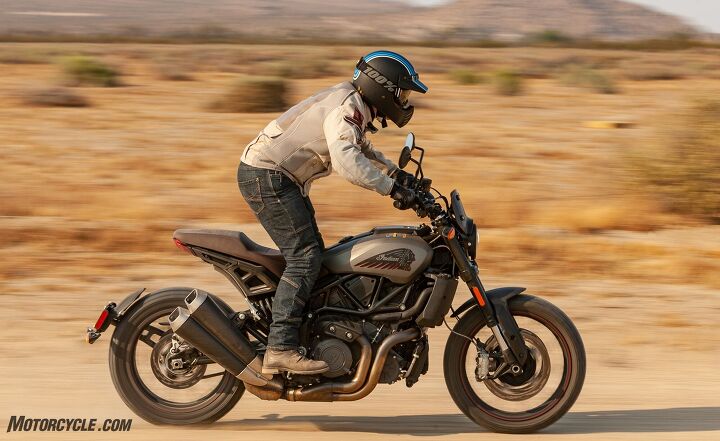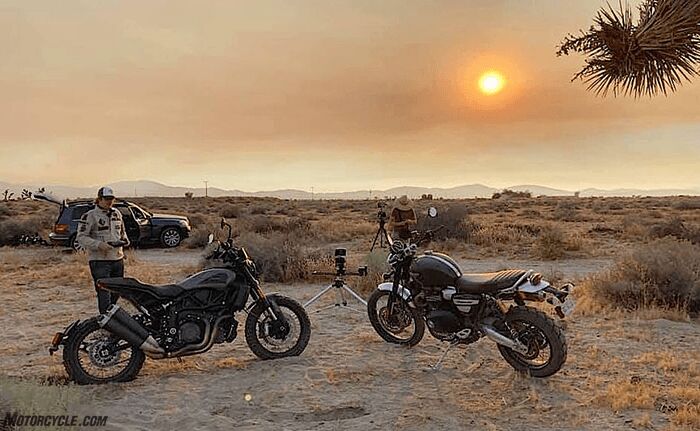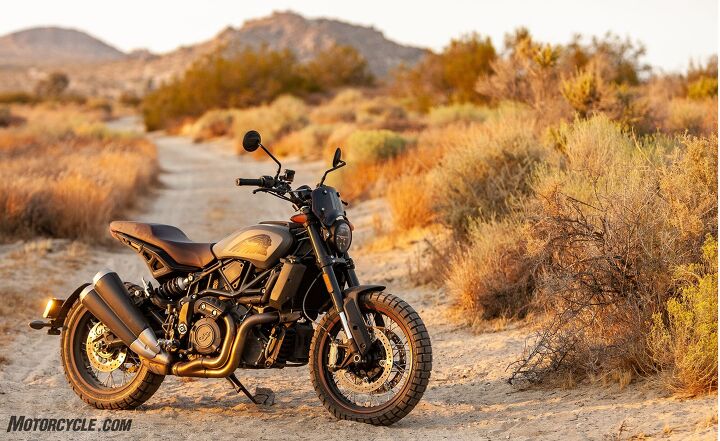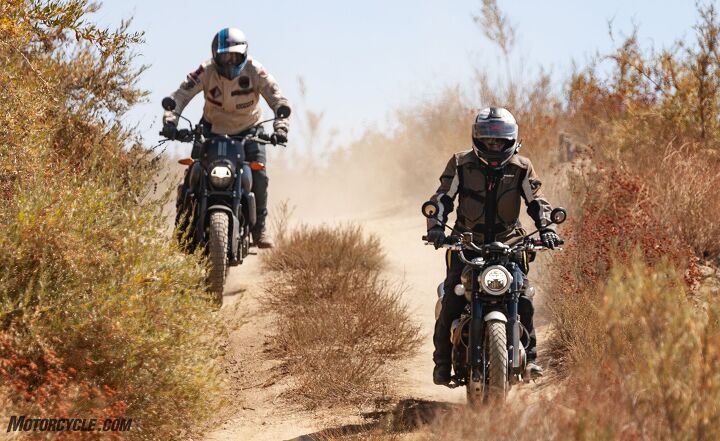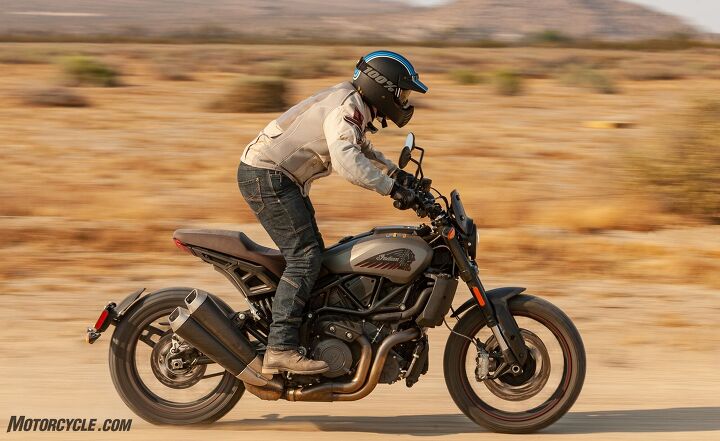When you’re not scrambling to make ends meet or get ahead, it seems like you’re constantly rallying the troops, possibly ’round the flag but usually just trying to instill pep. It’s always something, and both of those things are so ingrained in my psyche that I barely even miss roosting on the track or burning up the backroads. We were less impressed with the all-new Triumph Speed Twin than we expected to be a couple weeks ago, but when SoCal Motorcycles let us swap it out for a new Scrambler 1200 XC, it was love at first ride. Maybe in the ’60s, scramblin’ meant riding around in the desert with McQueen and those guys, but with the current state of infrastructure, now you can interface gnarly terrain without leaving the city. Scrambling is now something you can do every day.
Urban Scrambling
With its 7.9 inches of fully adjustable Showa/Ohlins suspension, the Scrambler XC is the answer, and crucially, its 33.1-inch seat is still accessible to 5’8” people like me. Hit the magic cruise control button on the freeway, and feel free to stretch out atop its long flat seat as required. Leaning into the 80-mph breeze, I like to use the passenger pegs from time to time, and a nice tank bag would be ideal to lean upon. A competitor of MO’s that’s known for picking the Ten Best Motorcycles every year named the sistership Scrambler XE its Standard bike of the year, which seemed rather strange. Now I think it’s a great choice – but the XC is a bit more standard than the XE (which our boy Ryan Adams put many miles upon).
And in this corner would be the Indian FTR1200 Rally, which is not all that different from the base FTR1200 except it gets a 2-inch higher ProTaper handlebar, cool wire-spoke wheels (19-/18-inch, tubeless) wearing Pirelli Scorpion Rally tires and a couple of other things to make it more Rally looking – even if it gets the same suspension, with 5.9 inches travel at both ends, as the regular FTR. That’s not a bad thing at all, though, since we can’t really ride an FTR without being tempted to take it down dirt roads. It just gives off that adventurous vibe does it not?
For being as alike as they are on paper – same displacement, same wheelbase, same seat height, close to the same weight – these two motorcycles couldn’t be much more different.
Going Places
I rode the Triumph an hour up the freeway one bright morning to meet the other kids, and was thinking to myself as I cruised along, the FTR is in trouble, this Triumph is so sweet. After an Ethiopian breakfast that reminded me why that country is known for famine, I stayed on the Triumph as we blasted up Sand Canyon, where I continued to be surprised by its handling on twisty pavement: She’s kind of high off the ground, but that 21-inch front tire still has plenty of grip and feel thanks to the supple Showa fork. There’s more than enough well-behaved thrust right off idle. The FTR is going to have its work cut out for it…
Then I swapped onto the FTR, twisted its throttle and OH HELL YES SWEET BABY JEEBUSS!! Nice as the Triumph’s Hi-Torque 1200 is, it can’t hold a candle to the Indian’s low-rpm whump. With its shorter stroke, higher compression and lighter flywheel, the FTR is well on its way to making 80 ft-lbs of torque as soon as you twist its throttle. To the Triumph’s golden retriever, the Indian is more un-neutered pit bull straining at the leash, and you’re glad for the bolster in the seat. With nothing in the way of traction control save the rider’s restraint, wheelieists need switch nothing off to get the front airborne.
The FTR’s suspension is firmer than the Triumph’s, its ergonomics just a skosh sportier, its exhaust barkier – and everything about it says it’s going to leave the Triumph in the dust. And yet, when we blast off down the tight, twisty, bumpy Sand Canyon, it doesn’t quite shake out that way.
The FTR’s 112 horsepower has you grabbing the brakes into lots of corners that the Triumph seems to roll smoothly through on its pillowy suspension with maybe a downshift. The FTR buries the XC in terms of horsepower, but it’s a far closer contest in the torque department. The Triumph’s unobtrusive yet insistent power delivery has you rolling the gas back on really early and often, and it’s also 24 pounds lighter than the Indian. The end result is an Anglo-American stand-off in which the FTR’s powerful bluster fights to a near draw with the Triumph’s unruffled smoothness – John Wayne versus James Bond. Both bikes, with their sit-up ergonomics, are a blast to ride on twisty asphalt, in completely different ways. On faster, smoother pavement, the FTR would pull away, but we were fresh out of fast smooth pavement this day.
Scrambling, Rural
If we’re talking scramblers, though, all good pavement must come to an end. My main objection with scrambling is you never really know when the nice graded two-lane you’re on is going to devolve into a rocky moonscape or a bottomless silt pit when you’re too far down it to turn around. But if you know things aren’t going to get too stupid where you’re going, either bike will work.
When things do begin to get jiggy, the FTR (which is probably called Rally and not Scrambler for this very reason) is the one you’d rather not be on, simply because of it shorter suspension travel and less ground clearance, and the fact that there’s no skid plate to protect its oil filter and battery – which things it carries right behind the front tire. A sharp rock could ruin your day; the Triumph comes with a nice aluminum skidplate.
And the Indian’s 19-/18-inch wheel combo isn’t bad at all for off-road work, but the Triumph’s 21-/17-in. wheelset is even better, as is its 2-in.-greater wheel travel. When the FTR starts to feel harsh off-road on its stiffer springs, the Triumph is usually rolling serenely along.
If you were worried a 2-in.-taller handlebar on the FTR would be too tall, you shouldn’t have been. It’s actually better than the original bar both on the trail and the street for average-height people (Ryan and I are both 5’8”), and its width is a nice compromise between control and in-town not-too wideness. What’s missing from the Rally, on the left grip, are the controls for the traction control, since it has none (nor the touch-controllable TFT display found on the “S” version of the FTR).
In off-road use, that lack of TC along with the bike’s massive off-idle thrust, means that judicious throttle control should be one of the tools already in your bag. If you whack open the FTR’s ripsnorting engine in first gear you better be paying attention. In second gear, you could still high-side yourself in a straight line or off the side of the mountain, and probably also in third. Luckily, all that power and torque is delivered linearly, with no flat spots or surges to surprise you. You’ll note all the off-road photos are of young Ryan on the FTR, who’s going through his dirt phase. He was a big fan of how easy it was to steer the Rally with its back tire.
Another potential problem is that the FTR’s ABS can’t be switched off, but on the short, not-so-steep descents we did, the bike’s 12.5:1 compression ratio provided enough engine braking to keep downhill speed in check.
Meanwhile, you can turn the Triumph’s TC off if you’re a hero, but why would you if you’re not? Its Off-road mode lets you spin the rear tire a little but not too much, and it switches off the rear tire’s ABS while it puts front ABS into a mode that stops the bike surprisingly hard on dirt roads without locking it up.
The Triumph’s Off-road mode is swell. At one point I got off the trail in the Mojave to turn around, was diverted by a large pile of ladies’ shoes, and found the rear tire digging itself a hole in the soft sand. Uh-oh. Normally I’d keep the gas on until I was sunk to the axle and yell for help. This time I also kept the gas on, and the bike’s computer had the engine going whuH whuh whUUNH whuh, while the rear tire dug itself out of the silt, spat out a high-heeled pump, and deposited me calmly back on the trail. Awesome. Thank you.
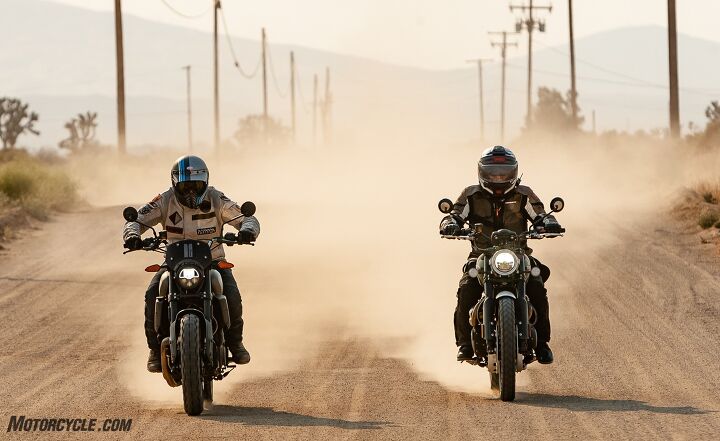
The FTR’s governor kicks in at 125 mph; the 1200 XC brain says enough at 116 mph. “On the Indian,” says Ryan A., “I’m not sure if it’s mostly the riding position or if the front number plate is actually punching a big hole in the air, but I felt way less pressure on my head, chest, and arms. The Triumph is much slimmer between the legs all the way down to between the heels.”
Pin the Hi-Torque engine in first gear in the loose stuff and nothing much happens but bog; in second gear the ECU allows more tire spin and the bike slinghshots you forward in a very satisfying and safe way. What could go wrong?
Meanwhile, to get himself and the FTR unstuck from another sand pit two trash heaps over, Ryan Adams could be seen off in the distance throwing up Miss Budweiser roosts of dust while its mighty engine bellowed away. That also worked, but seems more potentially disastrous if you should find yourself alone out there. Different strokes.
Long Days in the Saddle…
We go to great lengths to bring you the scoop and the video, and the swell thing is these are both nice to ride a couple hours home in the warm desert air after the sun sets. Did I mention that both bikes have cruise control? When you stop for gas, you can back off the damping in the Triumph’s fork with a credit card, and its lovely Ohlins shocks with your fingers, and it’s a nice, 80-mph Barcalounger that, like I mentioned up front, gives you quite a few seating options thanks to that long flat saddle. In slow going, the high exhaust system on the right can get a bit warm, but once cruising above 20 mph or so, it’s nearly completely unobtrusive in riding pants. On a cold night, the lack of wind protection would be a bummer, but then you already knew that.
The Indian “Aviator” saddle’s lip locks you a bit more in place and kinks your knees a bit more acutely. It fits my 5’8” body just about right, but might be confining if you’re much taller. Its suspension is non-adjustable (except for preload and rebound damping in back), but it still floats along the straight and narrow in reasonable serenity. The Rally also gets a small flyscreen, and together with its slightly more compact riding position, feels a bit more protective on the ride home. Both bikes have full LED lighting, but the FTR’s headlight bores the biggest hole in the darkness; it’s really bright.
For real adventuring, you’ll wind up cursing the FTR’s 3.4-gallon fuel tank, which has its low-fuel light staring at you way too soon. The Triumph’s 4.2-gallon tank is a little better, and its much better fuel mileage – 41 to 33 mpg for us – gives it way more range. For MO adventuring, we need to stop every 100 miles or so anyway for a Frappuccino and to play with our phones, so no big deal. The Triumph has an excellent foam-lined case with USB under the seat; the FTR’s port is right next to the speedo up front.
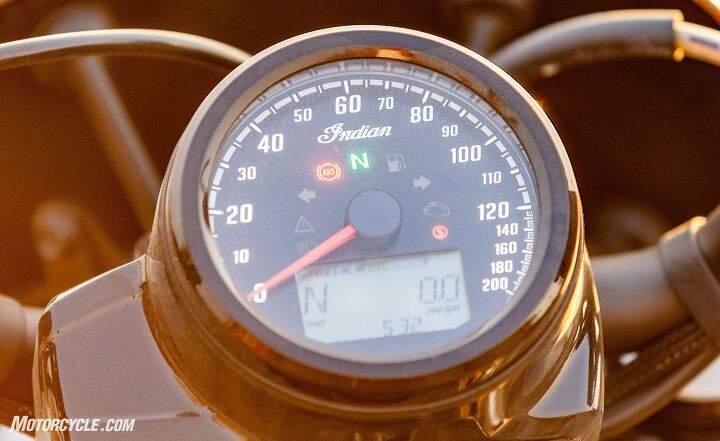
FTR Rally instrumentation is pretty bare-bones. FTR1200 S gets a touch-screen TFT along with ride modes, traction control, etc.
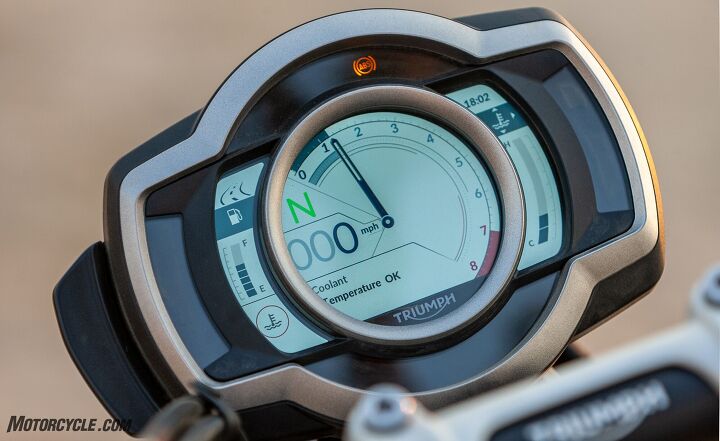
The Triumph gets a TFT display with various appearance options, along with controllability of the bike’s various ride modes. It fits the XC’s savoir-faire, which is everywhere.
Back at the Home Office
If you’re planning to actually go off-road quite a bit and want to maintain your health and your motorcycle’s, I think you want the Triumph and its excellent Off-road mode and more mellow, yet still plenty potent power delivery. If you’re really only rarely going to blast down dirt roads, you want the FTR and its rockem sockem robot motor, beautiful Titanium Smoke paint, and general fashion forwardness.
If you want nannies and 112 horsepower, what you could do is just order the Indian FTR 1200S, which comes with “lean-angle sensitive stability control, ABS, traction control, and wheelie mitigation control,” then pony up for the Rally Collection, which includes your aluminum wire-wheel set, tall handlebar, high mudguards, a high-mount Akrapovič exhaust, radiator covers, your flyscreen and a high license plate holder. But that’s gonna set you back $5,730 on top of the $13,999 S price. Viewed from that angle, the FTR Rally seems like quite the bargain.
Know thyself. If you’re a confident dirt person, you’ll be okay on the FTR. If just the thought of a few miles of deep sand makes sweat begin to roll down the small of your back but you still want to explore, you’ll be happier and more likely to return intact on the less powerful but more technically sophisticated Triumph.
Wait for it: These bikes are both winners! The Indian kills the Triumph in Objective scoring, thanks to its lower price and large power advantage. But the Triumph turns it around in Ryan’s and my Subjective scoring, thanks to its excellent suspension, off-road superiority and excellent electronics. In the end, the Triumph ekes out the win, with a 90.96% rating to the FTR’s 90.03. Frankly, I’m not sure if I accept the results. Maybe we should ride some more and see…
| Indian FTR1200 Rally | |
+ Highs
|
– Sighs
|
| Triumph Scrambler 1200 XC | |
+ Highs
|
– Sighs
|
|
|
|
|
| Scorecard | Indian FTR Rally | Triumph Scrambler 1200 XC |
|---|---|---|
| Price | 100% | 96.4% |
| Weight | 95.4% | 100% |
| lb/hp | 100% | 69.5% |
| lb/lb-ft | 100% | 89.0% |
| Total Objective Scores | 98.5% | 91.9% |
| Engine | 95.0% | 91.3% |
| Transmission/Clutch | 90.0% | 90.0% |
| Handling | 90.0% | 90.0% |
| Brakes | 85.0% | 92.5% |
| Suspension | 83.8% | 92.5% |
| Technologies | 80.0% | 95.0% |
| Instruments | 75.0% | 90.0% |
| Ergonomics/Comfort | 88.8% | 90.0% |
| Quality, Fit & Finish | 87.5% | 90.0% |
| Cool Factor | 90.0 | 86.3% |
| Grin Factor | 95.0% | 90.0% |
| John’s Subjective Scores | 89.0% | 90.0% |
| Ryan’s Subjective Scores | 86.9% | 91.5% |
| Overall Score | 90.0% | 91.0% |
| Specifications | Indian FTR Rally | Triumph Scrambler 1200 XC |
|---|---|---|
| MSRP | $13,499 | $14,000 |
| Engine Type | Liquid-cooled DOHC V-twin, 4-valves per cylinder | Liquid-cooled SOHC, 270°- crank parallel-twin, 4-valve/cyl. |
| Displacement | 1203 cc | 1200 cc |
| Bore x Stroke | 102 mm x 73.6 mm | 97.6 mm x 80.0 mm |
| Compression Ratio | 12.5:1 | 11.0:1 |
| Maximum Power, rear wheel dyno | 112.5 hp @ 8400 rpm | 74.5 hp @ 6500 rpm |
| Maximum Torque, rear-wheel dyno | 79.7 ft-lb. @ 6000 rpm | 67.7 ft-lb @ 5000 rpm |
| Fuel system | Closed loop fuel injection / 60 mm bore | Multipoint sequential electronic fuel injection |
| Exhaust | 2-1-2 | Brushed 2 into 2 exhaust system with brushed high-level silencers |
| Final drive | Chain | X ring chain |
| Clutch | Wet, assist & slip, multi-plate clutch | Wet, multi-plate assist clutch |
| Transmission | 6-speed | 6-speed |
| Frame | Tubular-steel Trellis frame | Tubular steel with aluminum cradles |
| Swingarm | Tubular-steel | Twin-sided, aluminum, 21.5 inches long |
| Front Wheel | Tubeless Spoked 19 in. | Tubeless 36-spoke 21 x 2.15 in., aluminum rims |
| Rear Wheel | Tubeless Spoked 18 in. | Tubeless 32-spoke 17 x 4.25 in., aluminum rims |
| Front Tire | 120/70R19 M/C 60V M+S Pirelli Scorpion Rally STR | 90/90-21 |
| Rear Tire | 150/70R18 M/C 70V M+S Pirelli Scorpion Rally STR | 150/70 R17 |
| Front Suspension | 43mm inverted telescopic cartridge fork, 5.9 inches of travel | Showa 45mm fully adjustable USD fork, 7.9 inches of travel |
| Rear Suspension | Monotube IFP, adjustable spring preload and rebound damping, 5.9 in travel | Öhlins fully adjustable piggy-back RSUs with twin springs. 7.9 inches of travel |
| Front Brake | Dual 320mm x t5 rotor with 4-piston calipers, ABS | Twin 320mm discs, Brembo M50 monoblock calipers, radial master cylinder. Switchable ABS |
| Rear Brake | Single 265mm x t5 rotor with 2-piston calipers, ABS | Single 255mm disc, Brembo 2-piston floating caliper. Switchable ABS |
| Rake | 26.3° | 25.8° |
| Trail | 5.1 inches | 4.76 inches |
| Length | 90 inches | 90.0 inches |
| Width | 33.5 inches | 33.1 inches |
| Height | 47.2 inches | 47.2 inches |
| Seat Height | 33.1 inches | 33.1 inches |
| Fuel Capacity | 3.4 gallons | 4.2 gallons |
| Fuel Mileage (observed) | 33 mpg | 41 mpg |
| Weight | 522 pounds (wet, measured) | 498 pounds (wet, measured) |


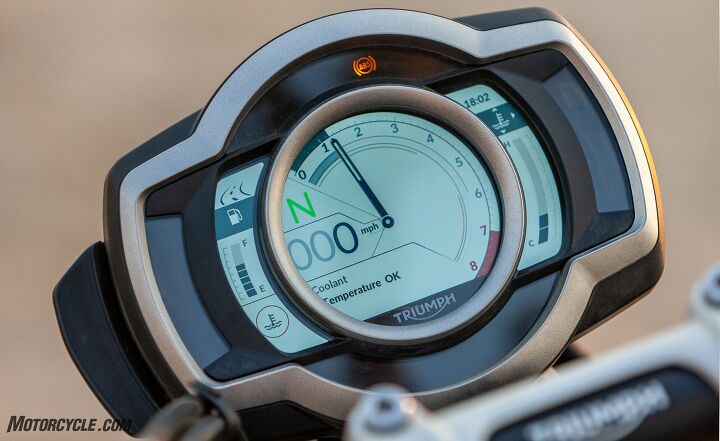









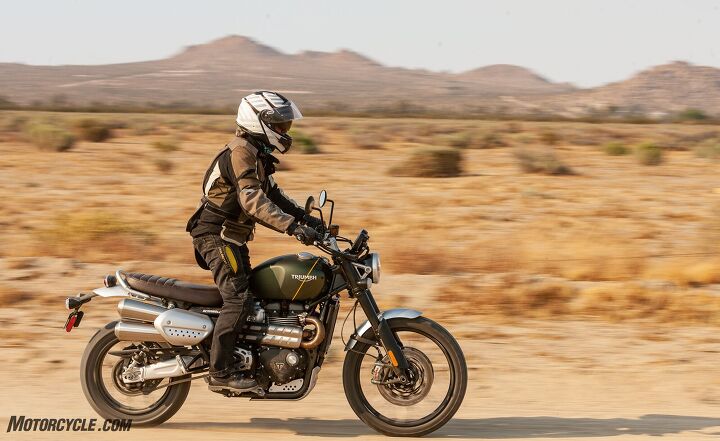






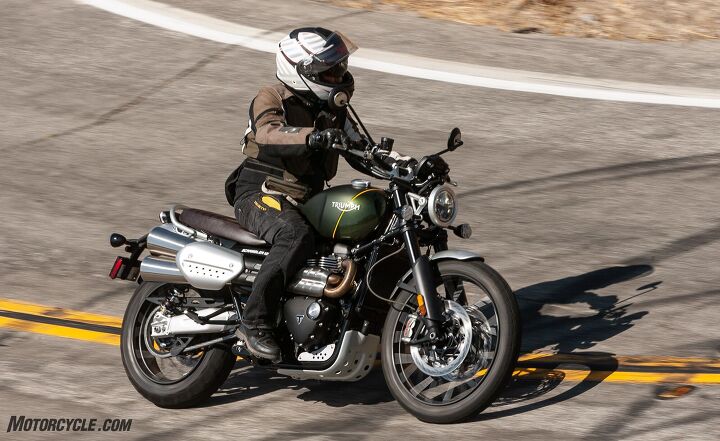
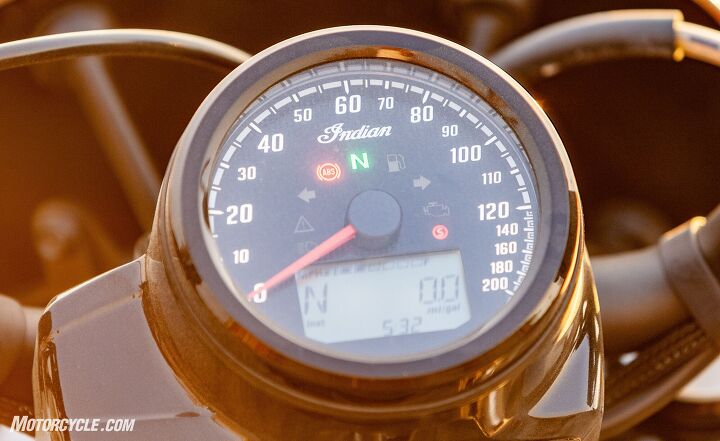








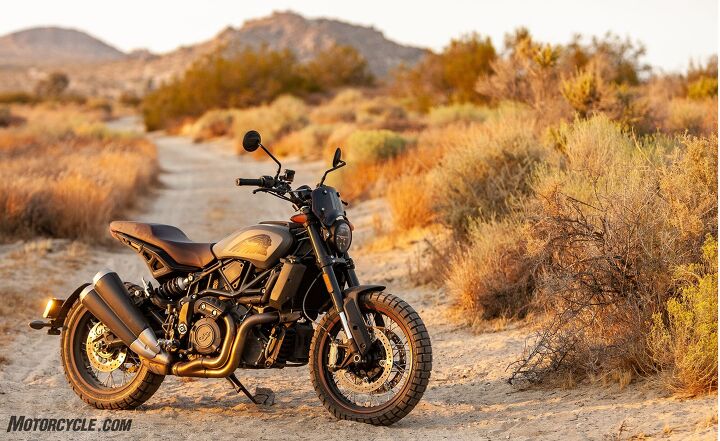


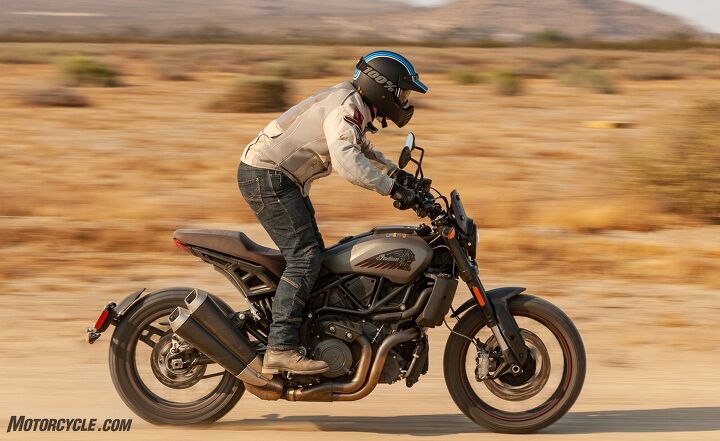






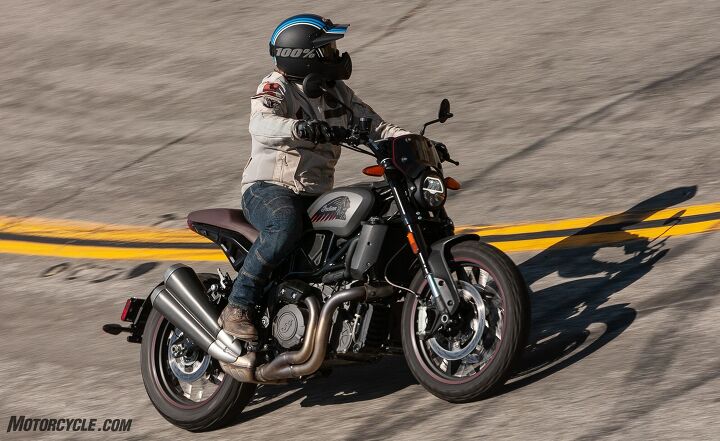
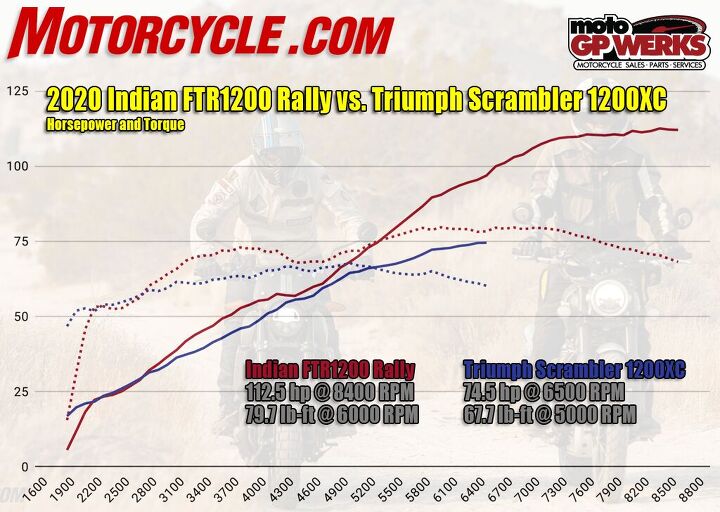




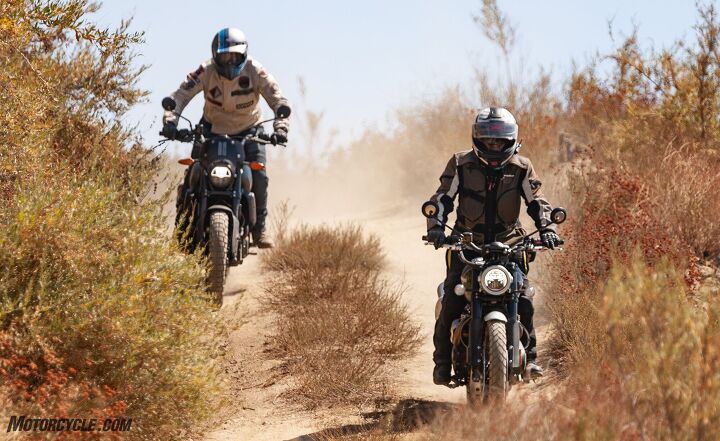



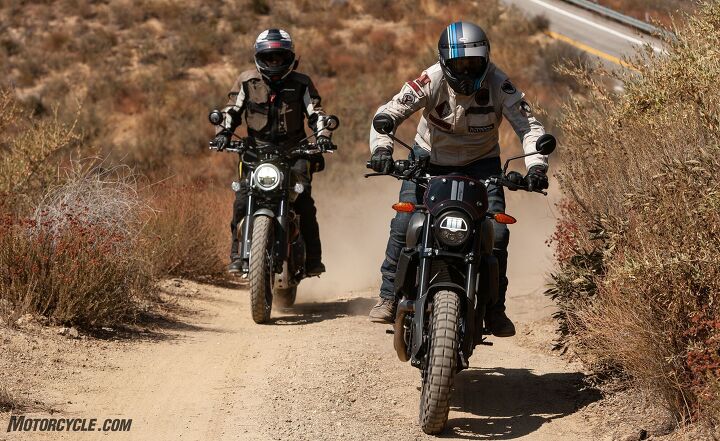

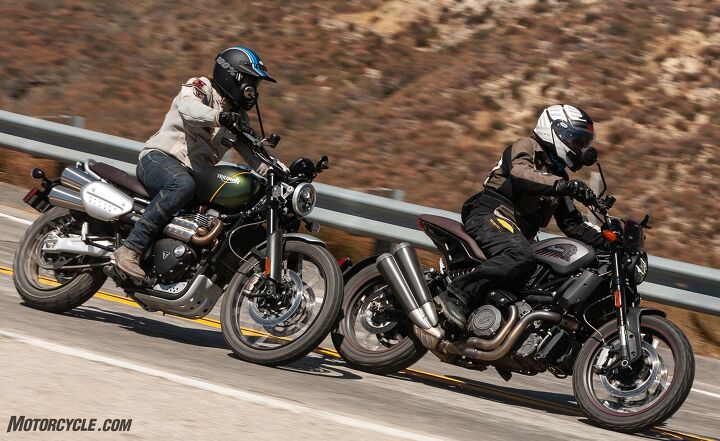

Become a Motorcycle.com insider. Get the latest motorcycle news first by subscribing to our newsletter here.
We are committed to finding, researching, and recommending the best products. We earn commissions from purchases you make using the retail links in our product reviews. Learn more about how this works.
The post 2020 Indian FTR1200 Rally vs. Triumph Scrambler 1200 XC appeared first on Motorcycle.com.
【Top 10 Malaysia & Singapore Most Beautiful Girls】Have you follow?
